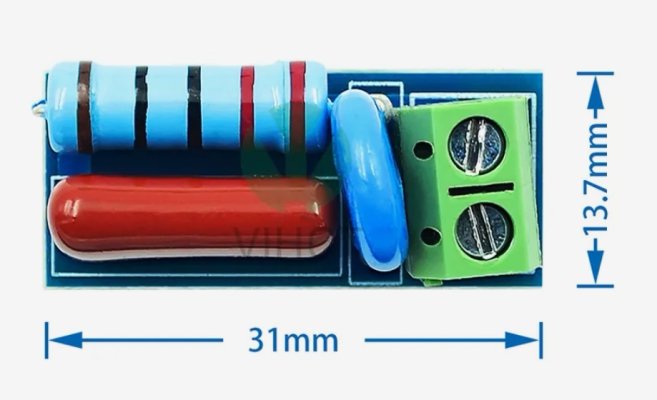Hi all, hope you and yours are keeping well!
So I need to redo my reef-pi setup as I am transferring it to a new aquarium and not only that I have just recently had a few of my relays in the relay modules fail on me. Initially it was my heater and ATO relays that died from over a year's worth of switching, so I replaced them with SSR modules.
These worked great for 6 months, however last week I had one of my heaters go caput and after a loud bang the thing quickly filled with water and sizzled a bit.
In doing so it took out the relay it was connected to, and then when I turned off the return pump to deal with it, the return pump would not turn back on......so another relay gave up the ghost!
So I was wondering if adding RC Snubber module to the relays would help with their longevity?

They are quite cheap:
AliExpress - RC snubber module
Now the other question is how are they actually wired in? From what I can see you simply wire them across either the COM and NO or NC contacts.......But I have seen them wired such that they are across the live and neutral lines on the 240v AC:

Which is it? Or does it not matter?
My new setup will have a 5vdc 16 channel relay module (won't be using them all) and I will put some decent omron AC/AC SSR between the relay modules and the heaters and motors just for some extra piece of mind. Just wondering if the RC snubbers will be if any practical assistance in reducing failure of the mechanical relays?
Any guidance would be greatly appreciated!
Cheers,
Levi

So I need to redo my reef-pi setup as I am transferring it to a new aquarium and not only that I have just recently had a few of my relays in the relay modules fail on me. Initially it was my heater and ATO relays that died from over a year's worth of switching, so I replaced them with SSR modules.
These worked great for 6 months, however last week I had one of my heaters go caput and after a loud bang the thing quickly filled with water and sizzled a bit.
In doing so it took out the relay it was connected to, and then when I turned off the return pump to deal with it, the return pump would not turn back on......so another relay gave up the ghost!
So I was wondering if adding RC Snubber module to the relays would help with their longevity?
They are quite cheap:
AliExpress - RC snubber module
Now the other question is how are they actually wired in? From what I can see you simply wire them across either the COM and NO or NC contacts.......But I have seen them wired such that they are across the live and neutral lines on the 240v AC:
Which is it? Or does it not matter?
My new setup will have a 5vdc 16 channel relay module (won't be using them all) and I will put some decent omron AC/AC SSR between the relay modules and the heaters and motors just for some extra piece of mind. Just wondering if the RC snubbers will be if any practical assistance in reducing failure of the mechanical relays?
Any guidance would be greatly appreciated!
Cheers,
Levi















